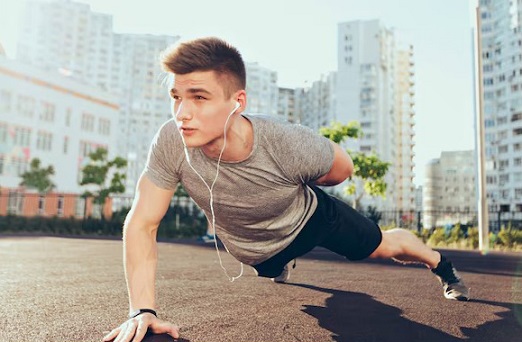Nikhil Prasad Fact checked by:Thailand Medical News Team Oct 27, 2024 1 year, 2 months, 1 day, 3 hours, 5 minutes ago
Health News: Understanding how to enhance endurance at high altitudes is essential, especially for those engaged in activities in low-oxygen conditions. A recent study conducted by researchers from multiple institutions, including the National Taiwan University of Sport, National Chung Hsing University-Taiwan, Massey University in New Zealand, Show Chwan Memorial Hospital-Taiwan, and the University of Toronto-Canada, provides new insights into how caffeine and glucose supplements may improve endurance. Their findings may be useful not only for athletes but also for anyone who wishes to perform better in high-altitude environments.
 How Caffeine and Glucose Boost Exercise Endurance in Low-Oxygen Conditions
The Study’s Goal
How Caffeine and Glucose Boost Exercise Endurance in Low-Oxygen Conditions
The Study’s Goal
The researchers aimed to determine if caffeine, glucose, or a combination of the two, taken before exercise, could boost endurance in a low-oxygen environment. Participants were eight active young males who performed a set cycling exercise in a hypoxic (low-oxygen) chamber with oxygen levels around 15%, simulating conditions at about 2,300 meters above sea level. The trial was designed to observe the effects of caffeine and glucose on endurance and the body’s use of energy from fats and carbohydrates.
This
Health News article details the key findings of this study, offering a comprehensive overview for those interested in how caffeine and glucose might influence endurance in hypoxic conditions.
Methodology
In this double-blind crossover trial, participants went through four different trials, with each testing the effects of different pre-exercise supplements:
Caffeine (Caff) - 6 mg per kilogram of body weight
Glucose (CHO) - 1 g per kilogram
Caffeine + Glucose (Caff-CHO)
Placebo (PLA) - a drink with no caffeine or glucose
The participants consumed the test drinks an hour before the exercise, which involved cycling for 90 minutes at moderate intensity, followed by a high-intensity endurance test until they reached exhaustion.
Key Findings
The endurance test revealed significant findings. Participants who took caffeine, glucose, or the caffeine-glucose combination exhibited improved endurance performance compared to those on the placebo. Here’s a breakdown of how each supplement impacted performance:
-Caffeine Alone (Caff): Participants taking caffeine alone showed an improvement in endurance time, with an average performance time of 433.8 seconds, a 44% increase compared to the placebo.
-Glucose Alone (CHO): Glucose improved endurance time to an average of 377.9 seconds, which was 31% higher than the placebo group.
-Caffeine and Glucose Combined (Caff-CHO): This combination had the most significant effect, with an average endurance time of 539.4 seconds, representing a 46% increase compared to the p
lacebo.
The study demonstrated that caffeine and glucose taken individually or combined could extend endurance time in a hypoxic environment, though the caffeine and glucose combination didn’t show significantly higher benefits than caffeine alone.
Blood Analysis Results
Blood tests taken at various points revealed additional insights into how these supplements influence the body during exercise:
-Fat Utilization: Caffeine and placebo trials showed higher levels of fat oxidation compared to the glucose and caffeine-glucose combination trials. This suggests that caffeine may encourage the body to rely on fat as an energy source, which is advantageous for prolonged endurance activities.
-Insulin and Glucose Levels: The study found that plasma glucose concentrations did not vary significantly across trials, although insulin levels were slightly higher in the glucose and caffeine-glucose combination trials.
-Free Fatty Acids (FFA) and Glycerol: Both caffeine and placebo trials had higher concentrations of FFAs and glycerol, indicating that caffeine promotes fat mobilization. This effect could be beneficial for endurance athletes seeking to preserve muscle glycogen by tapping into fat stores.
Understanding Endurance and Energy Use in Hypoxia
The study’s findings provide valuable insights into how caffeine and glucose can influence endurance performance in hypoxic environments. Hypoxia, a condition with reduced oxygen availability, typically increases the rate at which the body uses stored glycogen, potentially causing early exhaustion. Glucose supplementation alone may help delay this glycogen depletion by providing an alternative fuel source.
Caffeine, on the other hand, not only mobilizes fats for energy use but also reduces the perception of effort, which could delay the onset of exhaustion. This combination of physical and psychological effects makes caffeine a powerful endurance aid, especially when combined with glucose.
The Role of Caffeine and Glucose Together
While the caffeine-glucose combination did not significantly outperform caffeine alone in this study, the researchers believe further research is necessary. In some studies on normoxic (normal oxygen) conditions, caffeine and glucose together have shown enhanced benefits for energy use and endurance, likely due to improved glucose absorption and delayed glycogen depletion. However, in hypoxic conditions, these benefits were less pronounced.
Conclusions
This study’s findings suggest that caffeine and glucose, taken individually or together before exercise, can enhance endurance in hypoxic conditions. The primary mechanism for caffeine’s impact is likely related to both increased fat oxidation and reduced fatigue, while glucose provides an immediate energy source that could help preserve muscle glycogen. However, the caffeine-glucose combination did not provide significantly greater benefits than caffeine alone, indicating that caffeine’s effects may be potent enough on their own in low-oxygen conditions.
The study findings were published in the peer-reviewed journal: Nutrients.
https://www.mdpi.com/2072-6643/16/21/3624
For the latest Health News, keep on logging to Thailand
Medical News.
Read Also:
https://www.thailandmedical.news/news/insights-into-post-covid-microvascular-and-immunometabolic-changes-and-their-impact-on-physical-activity
https://www.thailandmedical.news/news/new-genetic-insights-show-that-hla-g-variant-linked-to-post-covid-exercise-breathing-issues
